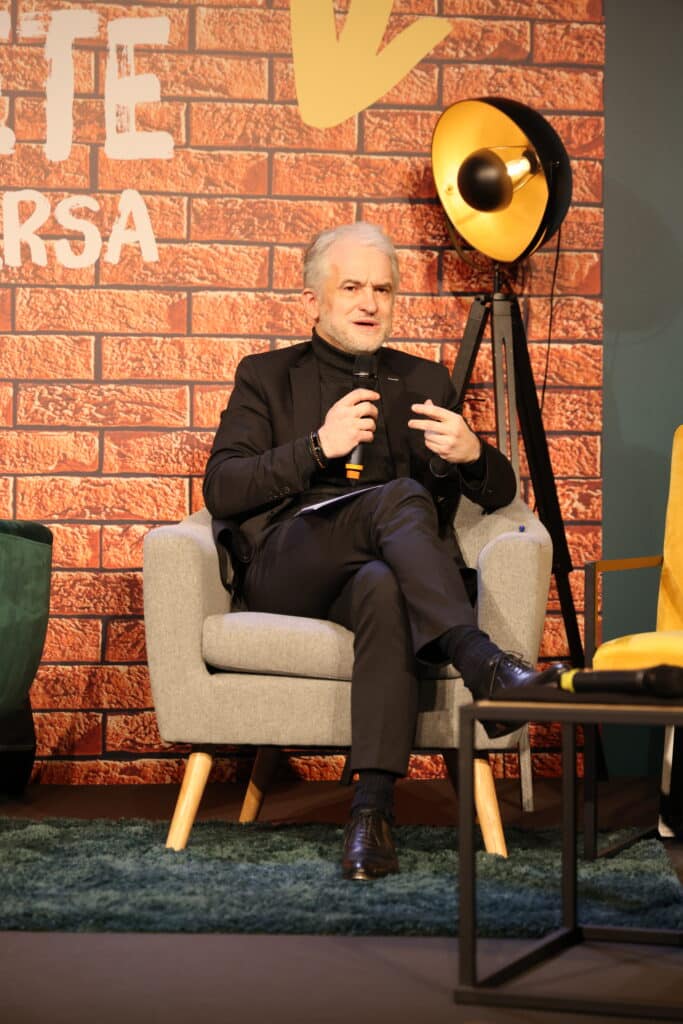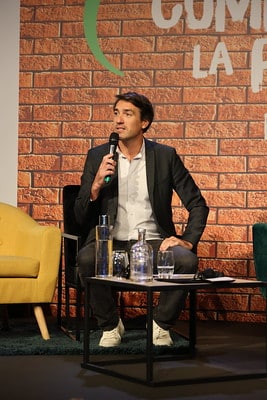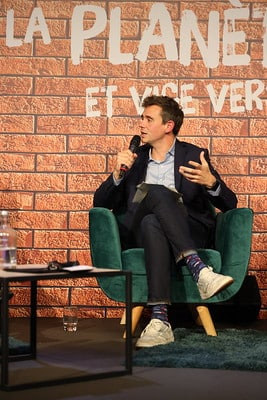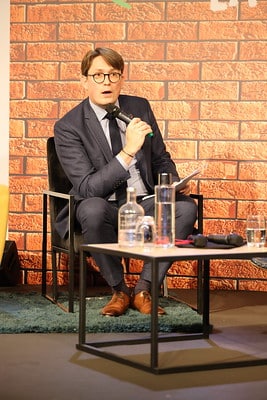Lors de la conférence plénière d’ouverture de la 12ème édition du World Forum, Max KOEUNE faisait partie des intervenants sur le sujet «Entreprises et territoires : la nouvelle donne mondiale». Soutenant la démarche RSE et l’intégrant dans sa stratégie de développement, le président et CEO (directeur général) de McCain Foods Limited a accepté de répondre à nos questions.
PDG de McCain, leader dans l’industrie agro-alimentaire, pensez-vous qu’on puisse ramener les jeunes vers le local et les territoires ? Plus largement vers l’agriculture ?
Je pense qu’il y a un mouvement qui est en train de se créer, de prise de conscience chez les jeunes. Il y a des solutions importantes à trouver pour accompagner l’agriculture vers une agriculture écologique.
C’est un sujet extrêmement compliqué, ça fait des décennies qu’on travaille d’une certaine manière la terre, qu’on a été dans une logique productiviste, pour nourrir une population qui croît. Aujourd’hui on se rend compte qu’on est arrivé au bout du modèle.
Les jeunes générations voient à la fois un sujet de société et la capacité d’utiliser de nouvelles technologies : cela fait une combinaison assez excitante, assez mobilisant pour se sentir capable d’avoir un impact et d’être un acteur du changement.
Comment concilier l’économie, le business et la responsabilité sociale des entreprises (RSE) en particulier face aux problématiques climatiques, sans faire de l’écologie punitive ?
La manière dont on regarde cela chez McCain, c’est que les deux vont ensemble puisqu’il s’agit de pérennité. On voit bien que d’une part les exigences des consommateurs changent, les questions d’aujourd’hui sur «qu’est-ce que vous faites pour développer l’organique?» le montrent bien. Donc il faut continuer à parler avec le consommateur et s’adapter.
Et il faut s’assurer qu’on continue par exemple, à préserver les sols car c’est notre outil de travail. On a une usine, et on a une terre. Il faut que l’usine marche, et que la terre continue à produire des récoltes années après années.
Pour nous ce n’est pas un sujet de complaisance, de faire ce qu’on attend de nous : mais mettre ça dans notre stratégie. C’est comme cela qu’on sera encore une entreprise leader dans dix ans voire dans quarante ans.
De votre point de vue, quelles seraient les 3 qualités nécessaires d’un bon leader, d’un bon PDG ?
Pour moi c’est d’être à l’écoute, première qualité. A l’écoute à l’intérieur de l’entreprise, puis à l’extérieure de l’entreprise.
La deuxième qualité est de savoir se concentrer sur quelques priorités. Car c’est très facile de vouloir faire cinquante choses en même temps, mais dans ce cas-là on en fait cinquante mal. C’est d’en choisir quelques-unes sur lesquelles on peut vraiment se mobiliser et sur lesquelles on peut faire une différence et avoir des résultats.
La troisième, je pense que c’est l’humilité. Car on ne peut pas prétendre avoir les réponses, dans ce cas-là on se trompe et on s’enfonce dans une impasse assez rapidement.
Arthur CORMAN



